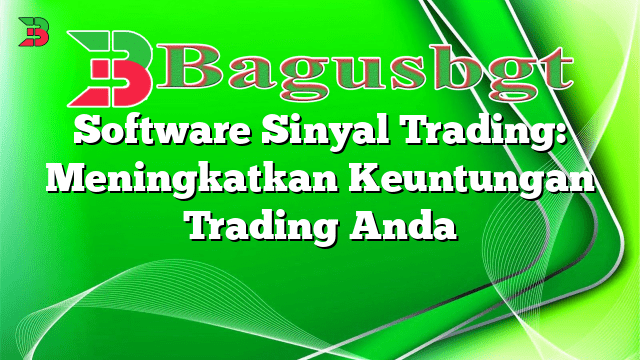Hello, dear readers! Today, we will delve into the fascinating world of Forex algorithmic trading. This groundbreaking approach to trading has revolutionized the way financial markets operate. By combining advanced mathematical models and computer algorithms, traders can now automate their strategies and execute trades with unprecedented speed and accuracy.
1. The Basics of Forex Algorithmic Trading
Forex algorithmic trading, also known as algorithmic or algo trading, refers to the use of computer programs to automatically execute trades in the foreign exchange market. These algorithms analyze vast amounts of historical data, identify patterns, and make trading decisions based on predefined rules and parameters.
One of the key advantages of algorithmic trading is its ability to execute trades at high speeds, far beyond what is possible for human traders. This speed advantage enables algorithmic traders to take advantage of even the smallest market inefficiencies and capitalize on profitable opportunities.
However, algorithmic trading also has its limitations. It heavily relies on historical data, and if the market conditions change significantly, the algorithms may fail to adapt quickly enough. Additionally, algorithmic trading systems are not immune to technical failures and glitches, which can result in substantial losses if not properly managed.
2. Advantages of Forex Algorithmic Trading
Forex algorithmic trading offers several advantages over traditional manual trading:
| Advantages | Explanation |
|---|---|
| Speed | Algorithms can execute trades in fractions of a second, enabling traders to capitalize on price fluctuations. |
| Accuracy | Algorithms eliminate human errors and emotions from trading decisions, leading to more precise executions. |
| Backtesting | Algorithms can be tested on historical data to assess their performance and fine-tune their parameters. |
| Diversification | Algo traders can execute multiple strategies simultaneously, spreading their risk across different markets and instruments. |
| 24/7 Trading | Algorithmic trading systems can operate around the clock, taking advantage of global market opportunities. |
3. Disadvantages of Forex Algorithmic Trading
While algorithmic trading offers numerous benefits, it also presents some drawbacks:
- Technical Failures: Algorithmic trading systems can experience technical glitches or connectivity issues that may lead to significant losses.
- Over-Optimization: Fine-tuning algorithms based on historical data may result in over-optimization, making them less effective in real-time market conditions.
- Dependency on Historical Data: Algorithmic trading relies heavily on historical data, and sudden market changes may cause strategies to underperform.
- Complexity: Developing and maintaining algorithmic trading systems requires extensive programming skills and expertise.
4. Alternative Approaches to Forex Algorithmic Trading
Although algorithmic trading is widely used in the Forex market, there are alternative approaches that traders can explore:
1. Social Trading Platforms: These platforms allow traders to copy the trades of successful traders, leveraging their expertise and strategies.
2. Signal Services: Traders can subscribe to signal services that provide buy/sell signals based on the analysis of experienced traders or trading algorithms.
3. Manual Trading: For traders who prefer a hands-on approach, manual trading allows for complete control over trading decisions but requires extensive market knowledge and experience.
5. Frequently Asked Questions (FAQ) about Forex Algorithmic Trading
Q: Can anyone engage in Forex algorithmic trading?
A: Yes, anyone with access to a trading platform and the necessary programming skills or access to pre-built algorithms can engage in Forex algorithmic trading.
Q: How much does it cost to develop an algorithmic trading system?
A: The cost of developing an algorithmic trading system can vary widely. It depends on factors such as the complexity of the strategy, the programming language used, and whether you choose to develop it yourself or hire a professional programmer.
Q: Are algorithmic trading systems legal?
A: Yes, algorithmic trading systems are legal. However, they must comply with relevant financial regulations and be used responsibly to avoid market manipulation.
Conclusion
In conclusion, Forex algorithmic trading has transformed the way traders operate in the financial markets. Its speed, accuracy, and ability to execute trades around the clock make it an attractive choice for both individual and institutional traders. However, it is crucial to understand the advantages and limitations of algorithmic trading to effectively harness its power and mitigate potential risks. Whether you choose to embrace algorithmic trading or explore alternative approaches, always remember to conduct thorough research and seek professional advice to make informed trading decisions.
 Bagus Banget Kumpulan Informasi terbaru dari berbagai sumber yang terpercaya
Bagus Banget Kumpulan Informasi terbaru dari berbagai sumber yang terpercaya


